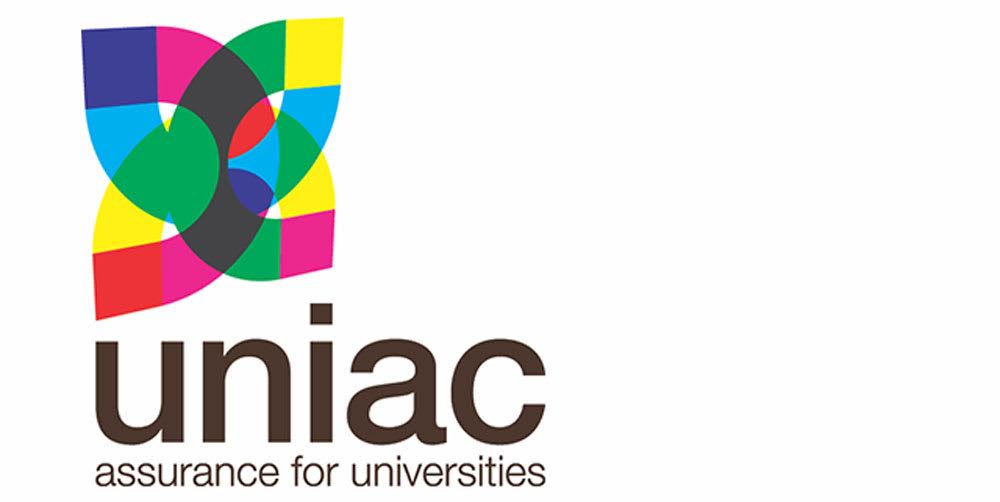Written by Chris Taylor, Assurance Consultant, Uniac
GuildHE’s strapline is ‘Distinction and Diversity in Higher Education’, and from the work we do with GuildHE members it is clear to us that this delivers huge benefits both to students and the country. From meeting the needs of specific subject areas and fast evolving local economies, to providing a unique and personal student experience in some of the most distinctive and inspirational settings across the country, we are consistently impressed and inspired by the contribution that GuildHE members make to UK Higher Education.
Uniac itself is no stranger to distinction and diversity. Formed over twenty-five years ago we provide internal audit, assurance and bespoke consultancy work to a wide range of HE providers. These include GuildHE members Falmouth University, Bishop Grosseteste University and the British School of Osteopathy and range as widely as the University of Cumbria, University of London, and both Manchester Metropolitan and the University of Manchester. We pride ourselves on our specialist higher education knowledge, our in-depth knowledge of the providers we work with, and a flexible and pragmatic approach that ensures no audit is merely a tick-box exercise.
Small and specialist is indeed beautiful. So how do we stay that way? From the work we have done over the past year and our wider sector expertise we have identified three key risks that we think are particularly relevant to GuildHE members:
- Meeting the needs of a changing and ever expanding bureaucracy
The volume of regulation and compliance requirements that the sector is subject to shows no sign of decreasing. For small and specialist providers the challenges of keeping on top of such a regulatory pile-up on already limited and stretched resources are well-known and long-standing.
However, with so many pieces of the Higher Education landscape in a state of flux we are entering a period of unprecedented change in the bureaucratic landscape that providers must understand and respond to. With a new HE Bill working its way through parliament and the implications of Brexit still very much to be worked through, and with changes to key drivers of regulation such as the expected new Office for Students, the new Teaching Excellence Framework and HEFCE’s revised approach to quality assessment, the list of changing and overlapping requirements is only likely to get longer.
- Student recruitment and the competitive marketplace
The current Government has been clear about its ambition to increase competition and its commitment to a market-based approach to driving up quality and has been steadily putting in place mechanisms to open the sector up to new entrants. In addition, the removal of the cap on student numbers will enable many established providers to grow into new areas of provision and increase their share of student numbers in existing areas. In this context of a growing and increasingly diverse and competitive sector the risk that small and specialist providers lose visibility to prospective students is increased.
In addition, as more funding flows through individual student’s fees and this incentivises providers to focus their resources on ensuring that the wider student experience is as attractive as possible, there are risks to recruitment for those smaller institutions without the ability to provide the access to resources and breadth of opportunities and experiences that other larger institutions may be able to provide.
The other side of this coin, of course, is that small really is beautiful. Each GuildHE member has their own distinctive mission and offer that will appeal to focused students who really know what they want from higher education. As a result, over the medium to long-term GuildHE institutions are well placed to benefit from better retention and progression rates and to be able to demonstrate that their students have benefitted from higher education.
- Brexit means Brexit?
The column inches that have already been written about the possible implications of Brexit for higher education, let alone the country as a whole, are proportionate to the extent of uncertainty surrounding them. However, in whatever scenario confronts us over the coming years, there are some particular areas of risk for GuildHE members.
As GuildHE’s own written evidence to the science and technology committee makes clear, the inevitable bureaucracy created with transitioning between current systems and whatever follows Brexit will be of concern to those with limited resources to adapt to the changes. Any restrictions on free movement will also worry those with a high number of early career researchers in need of network-building and support for pursuing opportunities wherever they are located. And for many GuildHE members that have historically been successful in accessing European funds and opportunities to collaborate in larger projects, the changes are potentially acute.
How Uniac can help mitigate these risks
There is no simple one-size-fits-all model or off-the-shelf solution for mitigating these risks. Instead, we can work in partnership with you to undertake grounded research, to understand how these risks are being managed at your institution and in your specific context, to support the steps you are taking to mitigate them and to make sensible, practical recommendations.
By working across a range of diverse providers we can help ensure developments affecting you are informed by a breadth and depth of knowledge of activity elsewhere. With our staff coming from a range of professional backgrounds including HE specialists, sector agencies such as HEFCE, and professional audit and assurance expertise from both within and beyond the sector we can ensure that we add value to your work.
To discuss this further, please contact us.
Chris Taylor on ctaylor@uniac.co.uk, 0161 2472860

